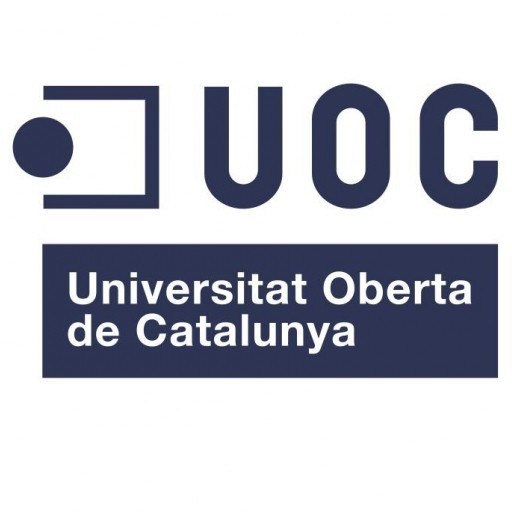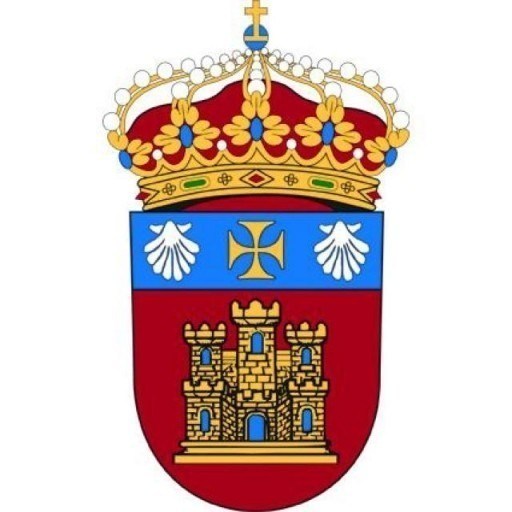Photos of university / #uocuniversitat
The MSc in Islamic Banking and Finance offered by the Open University of Catalonia provides a comprehensive curriculum designed to equip students with a deep understanding of the principles and practices of Islamic financial institutions. This innovative program covers a wide range of topics, including the core concepts of Shariah law as they pertain to financial activities, the structure and operation of Islamic banking, and the diverse financial products compliant with Islamic principles such as Mudarabah, Musharakah, Sukuk, and Takaful. Students will explore the historical development of Islamic finance, gaining insights into its global growth and the regulatory frameworks that support its expansion. The program emphasizes the ethical, legal, and economic foundations of Islamic banking, facilitating an understanding of how these principles differ from conventional banking systems.
Throughout the course, participants will analyze case studies from leading Islamic financial institutions worldwide, enabling them to apply theoretical knowledge to real-world situations. The curriculum also focuses on risk management, financial analysis, and compliance issues specific to Islamic finance, preparing students for leadership roles within this sector. Additionally, the program promotes critical thinking about the challenges and opportunities facing Islamic banking, including its integration with international financial markets and adaptation to modern economic environments. Graduates of this program will be well-positioned to pursue careers in Islamic financial institutions, regulatory agencies, consulting firms, or to engage in entrepreneurial activities within the Islamic finance sector.
The MSc in Islamic Banking and Finance combines theoretical lessons with practical applications, supported by expert faculty members with extensive experience in the field. The flexible online format allows students to balance their studies with personal and professional commitments, making it an ideal choice for working professionals seeking to enhance their expertise in Islamic finance. Overall, this master's program aims to develop highly skilled professionals who can contribute to the sustainable growth of Islamic banking and finance worldwide, fostering innovation while upholding the ethical standards of Shariah law.
The Islamic Banking and Finance programme at the Open University of Catalonia (UOC) in collaboration with HBMSU offers a comprehensive and in-depth exploration of the principles, practices, and institutional frameworks underlying Islamic financial systems. This programme is designed to equip students with the essential knowledge and skills needed to understand the unique features of Islamic banking, such as the prohibition of riba (interest), risk-sharing concepts, and ethical investing aligned with Shariah law. Throughout the course, participants will analyze the historical development of Islamic finance and its role in the global financial industry, gaining insights into the various financial products, services, and instruments used in Islamic banking institutions. The curriculum covers key topics including Islamic financial jurisprudence, modes of financing like Murabaha, Mudaraba, Musharaka, and Ijara, as well as the role of Islamic financial institutions, regulatory frameworks, and compliance requirements.
Furthermore, the programme emphasizes the application of Islamic financial principles in modern banking practices, enabling students to critically evaluate Islamic finance strategies within different economic contexts. Participants will explore case studies, real-world examples, and contemporary issues such as sukuk (Islamic bonds), takaful (Islamic insurance), and Islamic asset management. The course also provides insights into the emerging trends, challenges, and opportunities in Islamic finance, preparing students for careers in banking, investment, consultancy, or regulatory agencies specializing in Islamic finance. The flexible online learning environment allows students from around the world to study at their own pace, complete assignments, participate in discussions, and interact with experienced faculty members. By the end of the programme, graduates will have acquired a robust understanding of Islamic banking principles, regulatory requirements, and the strategic perspectives necessary to contribute effectively to the growth and development of Islamic financial markets. This programme aims to foster a deep understanding of Islamic finance's ethical foundations and its significant potential in fostering sustainable economic development worldwide.
The Islamic Banking and Finance programme at the Open University of Catalonia (UOC) in collaboration with HBMSU provides students with a comprehensive understanding of the principles and practices underlying Islamic financial systems. To enroll in this programme, applicants are required to meet specific entry criteria which typically include possessing a relevant undergraduate degree or its equivalent from an accredited institution. Prior knowledge of finance, economics, or business administration is advantageous but not always mandatory, as the programme caters to a diverse student body with varied academic backgrounds. Additionally, proficiency in English is essential since the programme's instructional language is English, and students are expected to demonstrate sufficient language skills either through previous academic qualifications or standardized tests such as TOEFL or IELTS.
The programme has specific technical prerequisites, including access to a computer with a reliable internet connection, as the courses are delivered online. Students should have basic familiarity with computer applications, particularly online learning platforms, to facilitate seamless participation in virtual lectures, discussion forums, and assessments. The curriculum is designed to be flexible, accommodating working professionals and international students from different time zones. As part of the admission process, candidates might be required to submit a personal motivation letter outlining their interest in Islamic finance and career objectives, along with academic transcripts and identification documents.
Once admitted, students must complete a set of core modules covering fundamental topics such as Islamic legal principles (Fiqh), Shariah governance, Islamic banking operations, financial products, and risk management. Elective courses allow specialization in areas like Islamic capital markets, sukuk (Islamic bonds), Islamic microfinance, and ethical investing. To successfully graduate, students are generally required to accumulate a specified number of credits through coursework, projects, and examinations within the allotted timeframe, typically ranging from one to two years for part-time study. Participation in webinars, case studies, and virtual workshops enhances practical understanding and engagement.
Assessment methods include written assignments, online quizzes, participation in discussion forums, and final examinations conducted virtually. Some modules may also involve group projects and presentations, fostering collaborative skills. Throughout the programme, students benefit from access to digital libraries, academic support services, and advisory consultations with faculty members experienced in Islamic finance. Upon completion, graduates are awarded a recognized certification that qualifies them for careers in Islamic banking, financial consultancy, regulatory authorities, or further academic pursuits. The programme aims to equip students with both theoretical knowledge and practical skills necessary to excel in the rapidly evolving Islamic finance industry, adhering strictly to Shariah principles and contemporary financial regulations.
The Islamic Banking and Finance program at UOC-HBMSU offers comprehensive financing studies designed to equip students with an in-depth understanding of Sharia-compliant financial principles and practices. The curriculum emphasizes the core concepts of Islamic finance, including the prohibition of interest (riba), risk-sharing mechanisms, and ethical investment principles, ensuring students grasp the fundamental differences between conventional and Islamic financial systems. Students explore various financing instruments such as mudarabah, musharakah, ijara, sukuk, and takaful, studying their structures, applications, and implications within the Islamic finance industry. The program also covers the development of Islamic financial institutions, regulatory frameworks, and the global growth of Islamic banking, offering insights into how these institutions operate in different economic contexts. Case studies and real-world examples are incorporated to enhance practical understanding, allowing students to analyze and evaluate Islamic financial products and services critically. Emphasis is placed on risk management, Sharia compliance procedures, and financial ethics to prepare graduates for the challenges faced by Islamic financial institutions today. The program aims to develop not only technical expertise but also ethical awareness, promoting responsible and sustainable financial practices aligned with Islamic principles. Graduates of the program are expected to possess strong analytical skills, a thorough understanding of Islamic financial products, and the ability to apply this knowledge in various professional settings, including Islamic banks, financial consultancy firms, regulatory bodies, and related industries. Overall, the financing studies component of the Islamic Banking and Finance program at UOC-HBMSU provides a balanced mix of theory and practice, preparing students to contribute effectively to the growing field of Islamic finance worldwide.
The Islamic Banking and Finance program at the Open University of Catalonia (UOC) in partnership with HBMSU (Hamdan Bin Mohammed Smart University) offers a comprehensive curriculum tailored to meet the growing demand for expertise in Islamic finance principles and banking practices. This program is designed to equip students with a thorough understanding of the fundamental concepts of Islamic banking, including the sharia-compliant financial products, risk management, Islamic financial markets, and regulatory frameworks. The curriculum emphasizes both theoretical foundations and practical applications, preparing graduates for careers in Islamic financial institutions, regulatory bodies, and consultancy firms.
The programme typically covers key topics such as Islamic banking principles, the jurisprudential foundations of Islamic finance, Islamic financial instruments like Sukuk, Takaful, Murabaha, Ijara, and Musharaka. It also explores global Islamic financial markets, the role of Sharia Supervisory Boards, and ethical considerations unique to Islamic finance. Students engage with case studies and real-world scenarios to develop analytical and problem-solving skills relevant to contemporary Islamic banking challenges.
The program is delivered through a flexible online learning environment, facilitating access for international students and working professionals. This method allows learners to balance their studies with personal and professional commitments, enabling a broader participation across different regions. The courses often include a mix of recorded lectures, interactive activities, assignments, and discussions to foster an engaging learning experience.
Graduates of this program are expected to gain a robust understanding of the principles underpinning Islamic finance and banking, along with practical skills to implement and oversee Islamic financial services. Career prospects include roles such as Islamic banking officers, financial analysts, compliance managers, and consultants specializing in Islamic finance. The program also aims to promote ethical banking practices in line with Islamic values, emphasizing social responsibility, fairness, and transparency.
The partnership between UOC and HBMSU enhances the credibility and international recognition of the program. It benefits from the expertise and resources of both institutions, ensuring that the curriculum remains aligned with global standards and industry demands. By completing this program, students can also pursue further specialization or academic research in Islamic finance disciplines.
Overall, the Islamic Banking and Finance program at UOC-HBMSU stands out as a specialized, accessible, and industry-relevant qualification for individuals seeking to build a successful career in Islamic finance, contribute to the development of ethical banking practices, and support the financial inclusion of Muslim communities worldwide.










